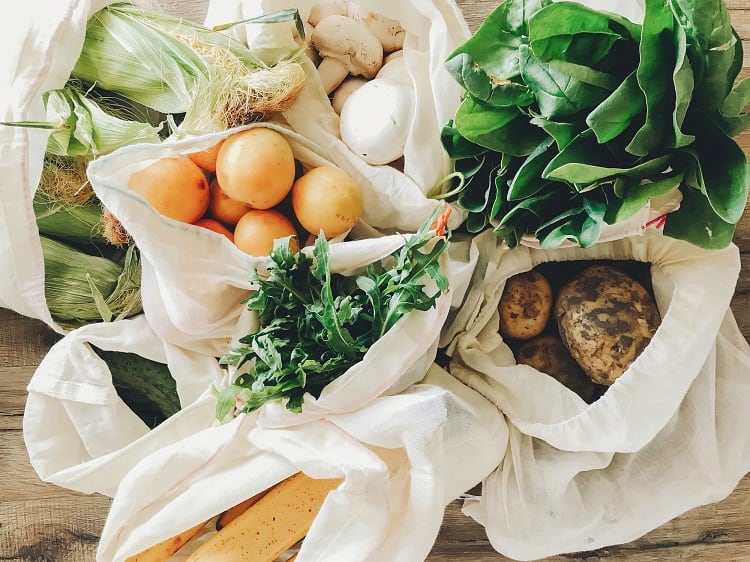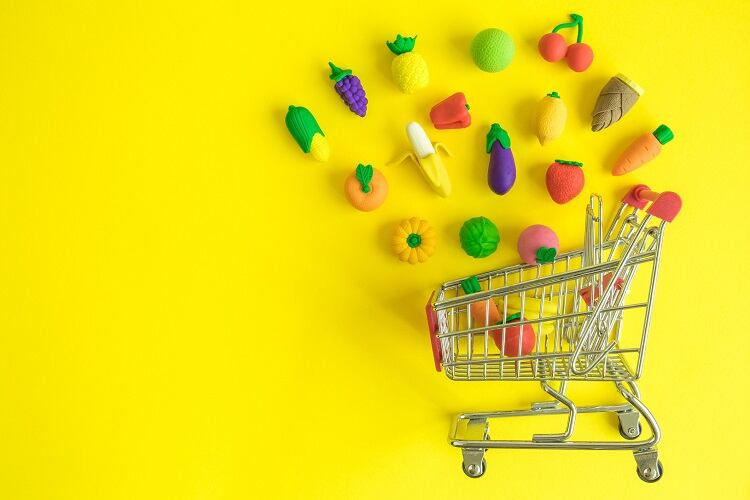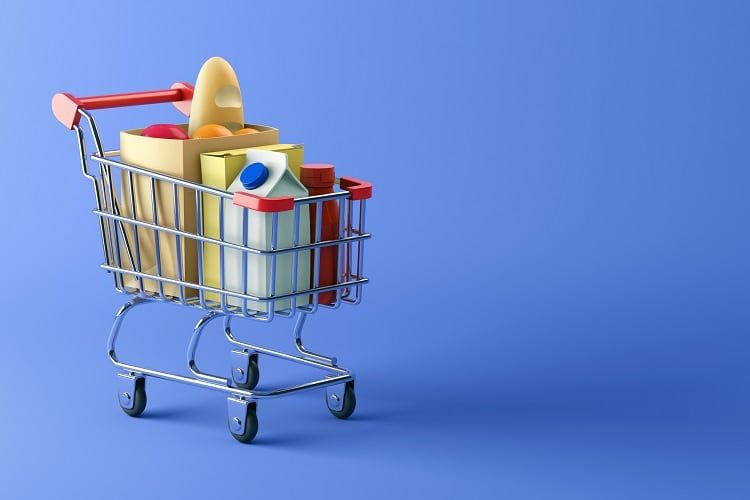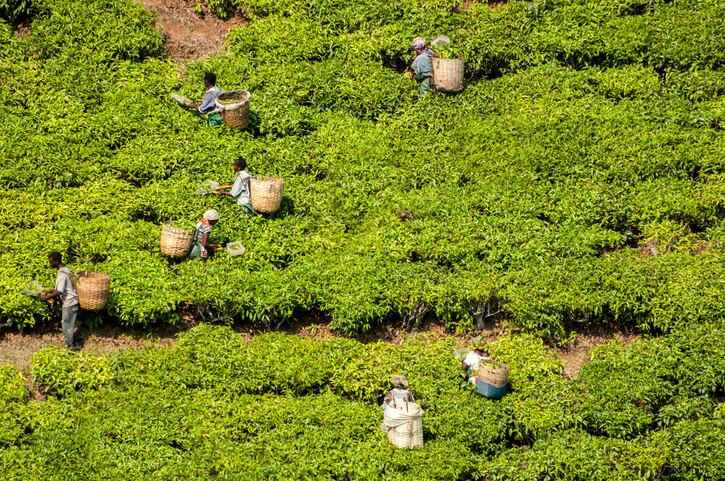The coronavirus pandemic has fast-tracked a great number of trends across Europe. Whether it be a preference for locally-sourced food or high-protein meat alternatives, supermarket retailers are responding to these new trends – and fast.
At the same time, environmental sustainability is front-of-mind for an increasing number of consumers. This trend, experts predict, is here to stay.
With the pandemic not yet behind us, what does the future hold for food trends, new product development, and category focus in-store? And how will supermarkets work to reduce their carbon footprints as we say a steadfast farewell to 2020, and move into 2021?
Fresh food: a ‘key battleground’?
The coronavirus outbreak has undoubtedly altered how and where consumers eat. With foodservice largely having ground to a halt for much of the year, 2020 saw many more shoppers buying food to consume at home.
This, suggested Retail Insight CEO Paul Boyle, who helps retailers to ‘sell more and lose less’ with the use of algorithms, data analytics and sector expertise, could mean increased focus on fresh food going forward.
“2020 has seen caloric consumption shifting to home, given lockdown and restrictions on the hospitality trade, and it has emphasised just how important a strong fresh food offer is for food and grocery retailers,” he told FoodNavigator. “This is a key battleground, but it sometimes misses a clear and cogent customer proposition in the face of the expense that it takes to run it effectively.”
Observing the UK retail sector, Boyle noted that Sainsbury’s had announced its desire to differentiate itself on food and grocery through quality, value and service. However, ‘somewhat counterintuitively’, it decided to close its counters in-store.
“Fresh food is an area that Amazon finds difficult to compete in effectively and a clear and differentiated position on fresh food could be an area where the established core bricks-and-mortar retailers win in the face of this competition.”

Kara Nielsen, Director of Food & Drink at consumer trend forecaster WGSN, is not convinced we will observe this kind of step-change in the coming months.
“For 2021, the prepared food sector in retail grocers will be slow to return to a pre-pandemic normal where salad and hot food bars were standard and grocers heavily invested in unique restaurant-inspired fare,” she told this publication.
“Expect an expansion beyond the comfort food we are seeing now into more globally inspired bowl meals, take-and-bake dishes, and safely wrapped food to go.”
Meat alternatives and low-to-no
The plant protein space has exploded over the last couple of years, as an increasing number of consumers try out meat-free or meat-reduced diets.
Chris Elliot, Digital Shelf Analyst at data insight firm Edge By Ascential, is convinced the plant-based category will continue to grow – pointing to Tesco’s ambition to increase the sale of meat alternatives by 300% by 2025.

However, Edge By Ascential’s analysis reveals that retailers are focusing less on established brands and investing more in rapidly growing smaller manufacturers and new disrupters, we were told. “In fact, as of November 2020, there were 15% more brands available in this category than the same time in 2019. Vegan chocolate is also set to expand, particularly from oat milk-based chocolate such as the recent range from Lindt.”
Another growth area, the Digital Shelf Analyst added, is the low/no alcohol category. However, Elliot continued, much like the plant-based category, we are seeing established brands losing market share to new entrants.
“In contrast to this, non-alcoholic beer is being spearheaded by major manufacturers such as Budweiser and Heineken, and towards larger pack size products.”
The ‘Climatarian Diet’
Another up-and-coming trend, according to WGSN’s Nielsen, is climate-smart food. The Food & Drink Director described a regime in which consumers select products according to their climate impact as the ‘Climatarian Diet’.
“We expect a rise in the ‘Climatarian Diet’, one of our trends for 2021 that reflects efforts brands, retailers and consumers are making to reduce negative climate impact through food,” she told this publication. “Companies are already adding new carbon-related claims to packaging [and] investing in third-party certification."
Quorn is one company that springs to mind. The mycoprotein firm introduced carbon footprint data on-pack, certified by the Carbon Trust, in 2020. Oat drink brand Oatly is another to embrace on-pack carbon data: the dairy-free disruptor has partnered with CarbonCloud to calculate the climate impact of its products.
In foodservice, some operators are creating ‘climate-friendly’ menus, said Nielsen, who cited US-based Panera Bread as an example. The chain has launched a ‘Cool Food Meal’ programme, we were told. And in Sweden, Orkla Foods-owned The Climate Store is pricing its groceries by carbon footprint. “We’ll see more efforts like these in 2021.”
Cutting carbon and plastic packaging

Concerning supermarket retailers’ overall carbon reduction schemes, Edge by Ascential’s Elliot noted that most of the UK’s grocery retailers have made pledges to reduce their carbon emissions. “This ties in with increasing consumer concerns over sustainability,” he added.
Plastic packaging is also front-of-mind for the sector. “Many have already proactively reduced the use of plastic packaging, and the likes of ASDA have taken this a step further by launching their first fully sustainable store in October 2020, which includes loose and unwrapped fresh produce as well as refillable stations.”
According to Elliot, retailers are also under increased pressure from manufacturers to act. “With more brands becoming environmentally conscious, this will likely accelerate retailers’ pledges,” he said, referencing BrewDog’s ‘highly publicised’ news that it has become the world’s first carbon negative international beer business
“As well as this, we anticipate increased efforts across all retailers to promote recycling, reduced water usage and sustainable eating in the coming year as we edge closer to reaching retailers’ zero emissions targets,” said Elliot.
As retailers make these commitments, others will be encouraged to follow, suggested Retail Insight’s Boyle. The CEO believes the environment could well be a winner out of increased competition in climate-focused pledges.
“Many retailers have made pledges to improve their sustainability and carbon footprint in the next few years - Tesco has probably led the way here for some time - and there is real momentum in many retailers so doing the best here is, encouragingly, a competitive sport.”
For Boyle, introducing sustainable initiatives, such as less plastic wrapping, is just part of a ‘very complicated’ and ‘interdependent’ value-chain issue.
Retailers could also address the ‘huge problem’ of food waste, as massive volumes of stock are sent to landfill every year – much of which could be avoided through better and more dynamic end-of-shelf-life pricing, we were told.
“This is an issue that could be tackled by retailers simply and on very quick timescales, without the need for huge, complex collaboration efforts across the value chain. Some food retailers believe that their quality offer will be compromised if they sell products at reduced to clear prices, but even Harrods runs a sale!”
WSGN's Kara Nielsen, Retail Insight's Paul Boyle, and Edgy By Ascential's Chris Elliot shared their 2021 predictions on the role of bricks-and-mortar stores and the e-commerce boom here.





